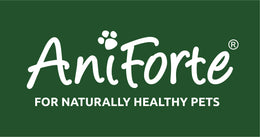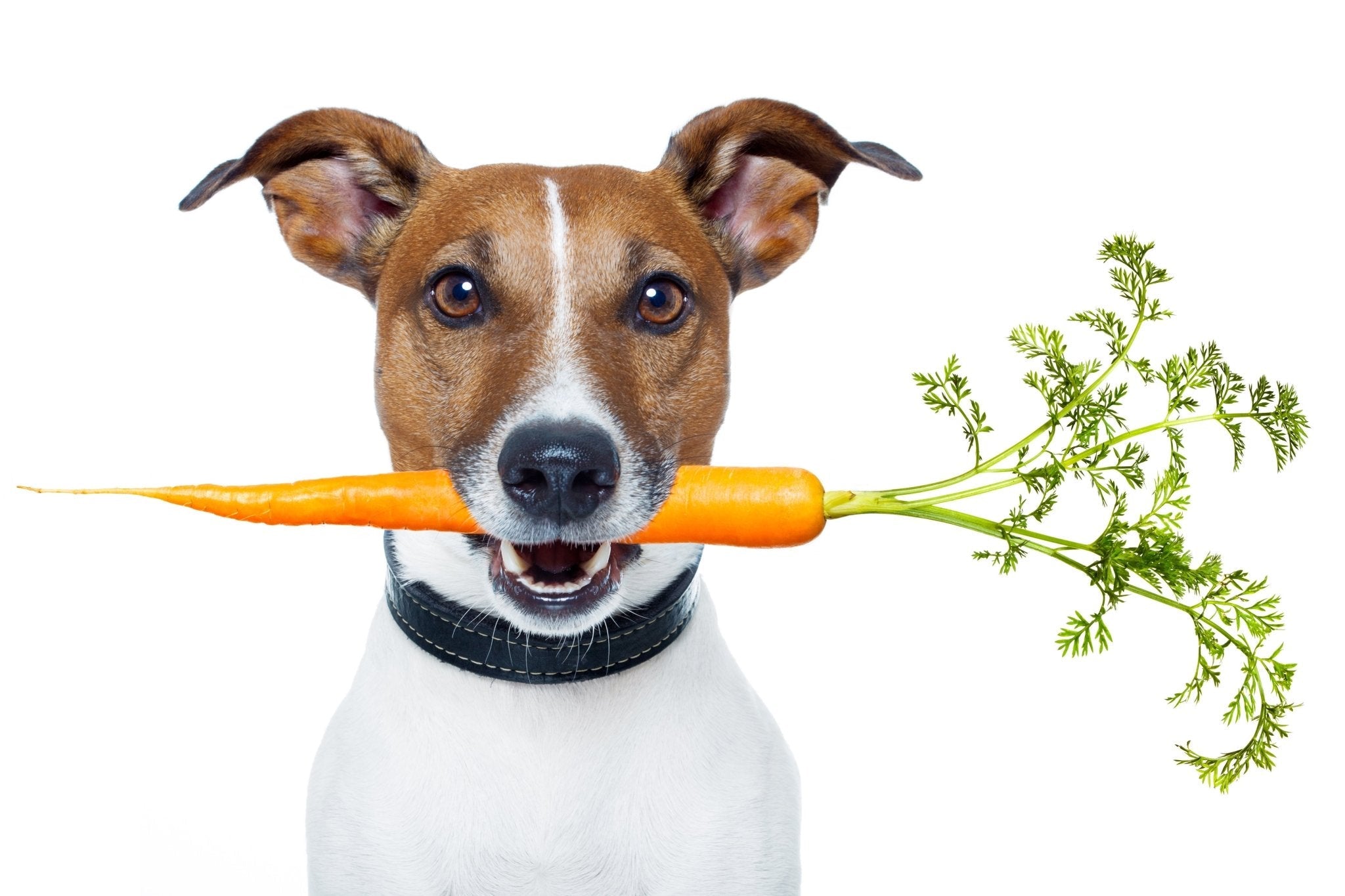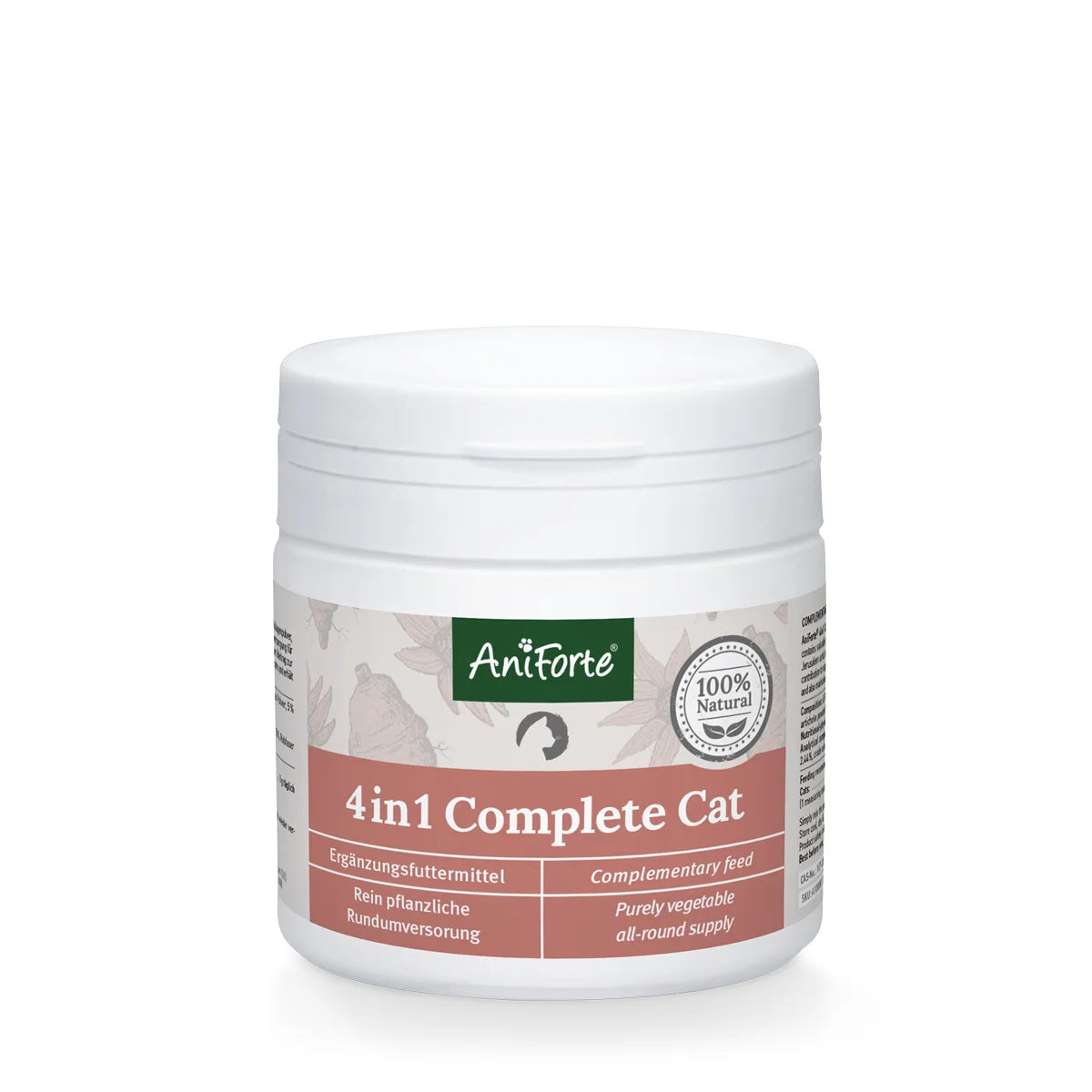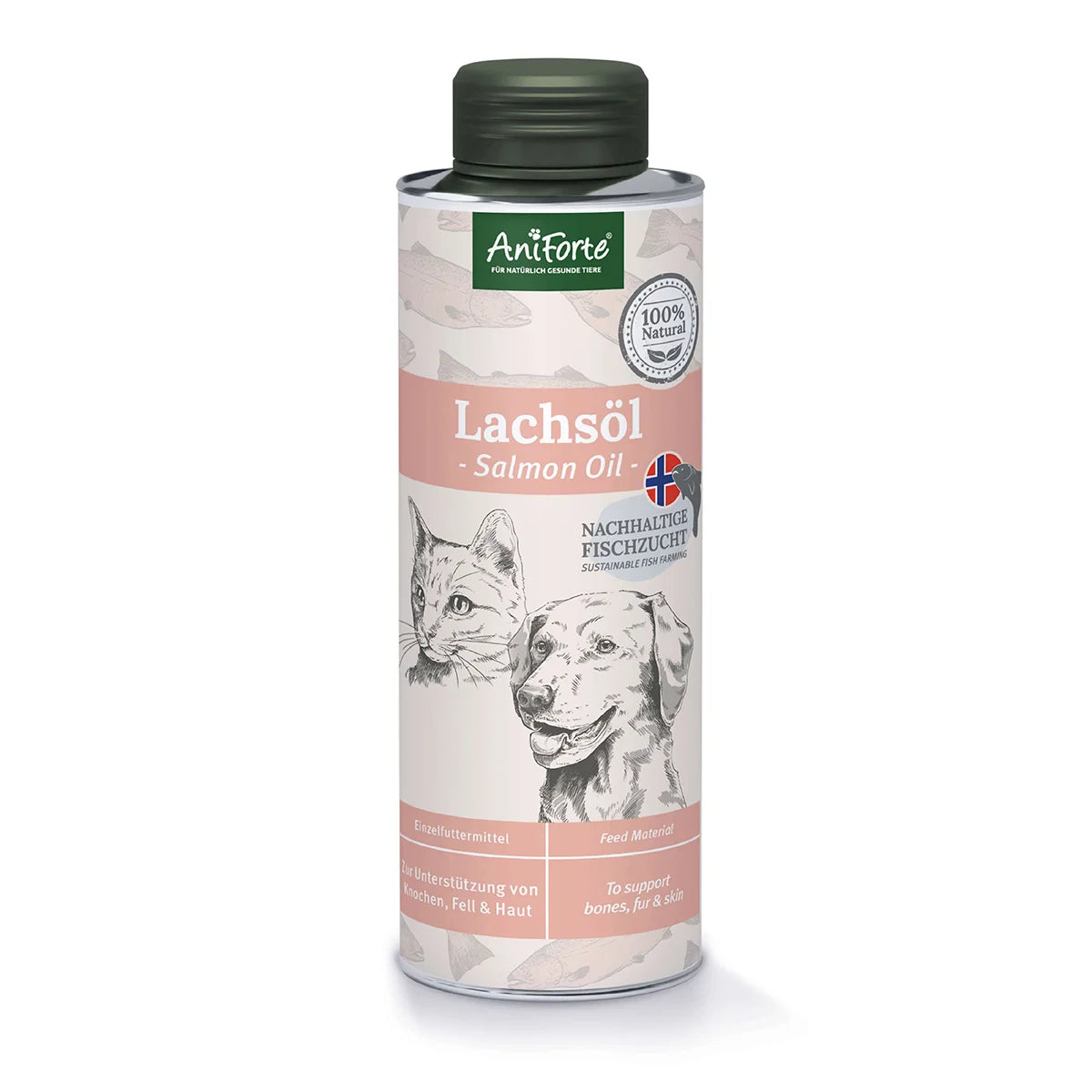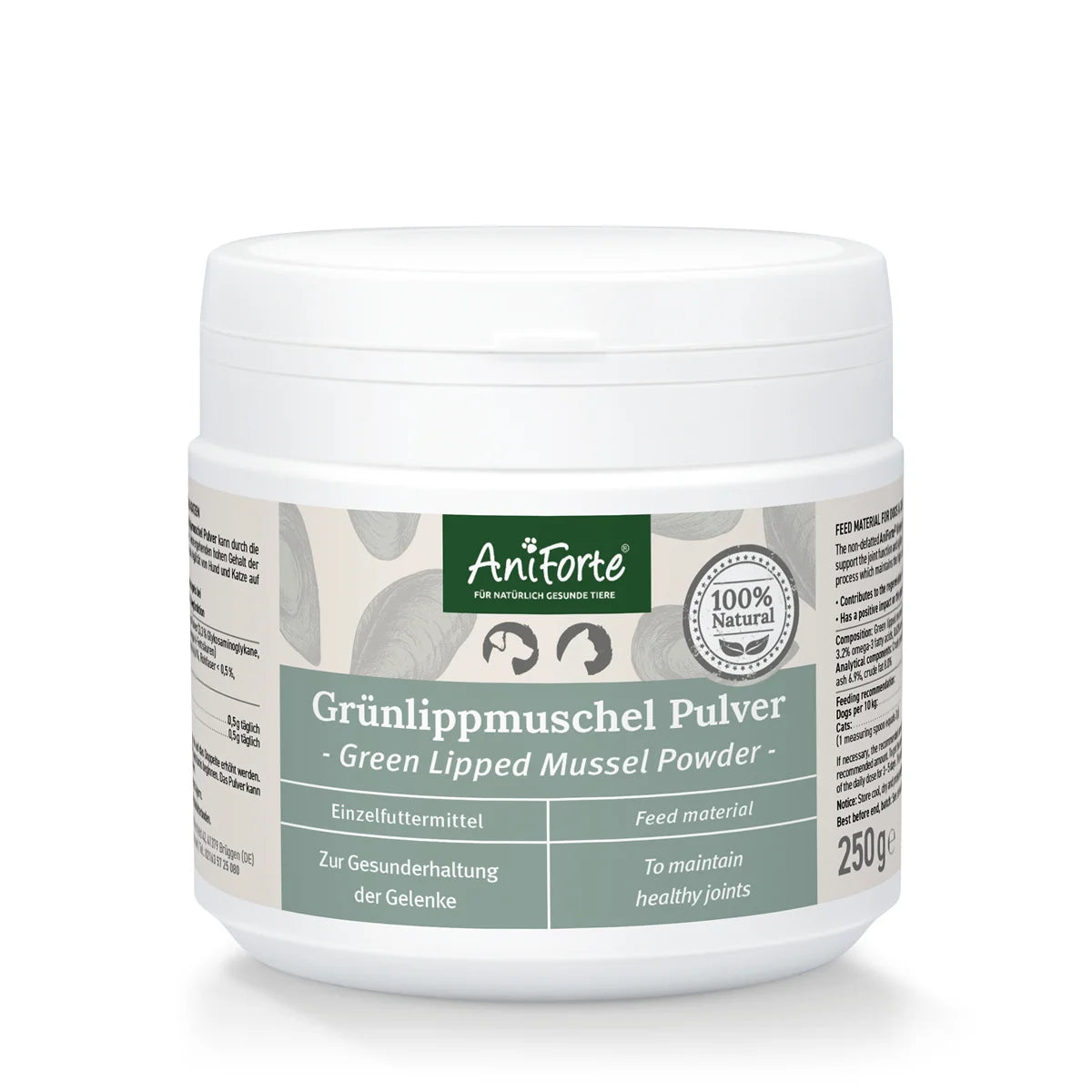
Your dog may have eaten something he shouldn't have and is now possibly infected with bacteria, viruses or parasites. What follows is persistent diarrhoea, which can render your dog lethargic and weak. If the problem persists, then it can even lead to chronic health issues down the line. Rather than resorting to medication or even antibiotics, a traditional remedy can ease the symptoms of diarrhoea: Professor Moro's Carrot Soup, we have our own version here: Organic Morosan Prebiotic Supplement. This is a great addition to your cupboard for when you dog is in need.
Originated in human medicine, Moro’s Soup is a traditional healing soup for diarrhoeal diseases. In this article, you will learn what Professor Moro's Carrot Soup is and how nutritious carrot soup can help your four-legged friend with diarrhoea symptoms.
What is Professor Moro's Carrot Soup?
This traditional healing soup can be traced back to the 20th century. The name comes from the Austrian professor and pediatrician Ernst Moro. He managed to drastically reduce the mortality- and complication-rates of children suffering from diarrhoeal disease thanks to his digestible light diet. Since there was no general use of antibiotics at that time, the mortality rate in children with diarrhoea or acute gastroenteritis was very high. Ernst Moro, ever the passionate botanist, developed the healthy healing soup against bacterial diarrhoea. The gentle action of Moro's soup makes it a natural antibiotic without side effects. Besides, carrot soup provides valuable nutrients and can contribute to the support of intestinal health overall.
Why is my dog suffering from diarrhoea?
Diarrhoea is one of the most common signs in dogs when there are disorders of the digestive tract. The cause is often bacteria infestation. These pathogens colonise the intestines and attach themselves to the receptors of the intestinal epithelium. A few carbohydrates serve as adhesion molecules and enable the intestinal bacteria to dock to the intestinal wall. Once they have made themselves comfortable, they start releasing toxins and attack the intestinal flora. The intestines react with diarrhoea to transport these microorganisms out of the body again, resulting in mushy and sometimes very watery stools. Due to the diarrhoea, dogs may also experience stomach problems, digestive disorders and even fever. A serious loss of nutrients is also accompanied by diarrhoea. Therefore, caution is advised with prolonged diarrhoea, because dehydration and the loss of important nutrients can affect other organs of your four-legged friend. Puppies, young or weakened dogs are particularly at risk if diarrhoea persists. Early oral rehydration and rapid elimination of germs are thus a primary treatment goal.

How does Moro's carrot soup help dogs with diarrhoeal diseases?
What makes this soup so effective are so-called oligogalacturonic acids. They aren't contained in raw carrots and only form during a long cooking process. The exact mechanism was only deciphered by Prof. Dr. Josef Peter Guggenbichler and the Viennese pharmacologist Prof. Johann Jurenitsch at the beginning of this century after almost 20 years of research.

When carrots are cooked for a long time, carbohydrates are broken down, and acid oligosaccharides are formed. They are similar to the receptors of the intestinal epithelium, to which the pathogenic intestinal germs usually dock. The oligosaccharides prevent the attachment of these germs by binding the pests to themselves and transporting them out of the body with the stool. Once the pathogens can no longer adhere to the intestinal wall and spray their toxins, the intestinal flora can regenerate. The symptoms and diarrhoea should improve significantly within 48 hours of the pet having been given Moro's carrot soup. The light diet is given over the course of two days and split into small portions.
Another benefit of Moro's carrot soup is that it can remedy nutritional deficiencies and act against dehydration. That's why it's great to give to your dog during bouts of diarrhoea, and also as a preventative supplement when you notice the first signs of diarrhoeal diseases. The soup also acts as a natural antibiotic and can replace the administration of antibiotics when symptoms are mild.

Jerusalem artichoke for dogs: The perfect prebiotic complement for Moro's carrot soup
Jerusalem artichoke isn't just found within dog food, it can also be given as a complement to carrot soup for dogs. The healthy roots contain valuable prebiotics such as Inulin, which serves as food for good intestinal bacteria and can contribute towards an ecological balance in the intestine. These water-soluble fibres stimulate the activity of the beneficial bifidobacteria in the large intestine and can, contribute to the development of the intestinal flora. Jerusalem artichoke supplements the effect of the oligosaccharides found in Moro's carrot soup due to its valuable properties and is a proven prebiotic for a healthy intestinal mucosa.
Useful remedies for the gastrointestinal tract of your dog
To stabilize the sensitive gastrointestinal tract of your pet you can use different natural means. Their use depends on the respective symptomatology and the complaints of your pet. While Moro's carrot soup mainly supports the natural intestinal health in cases of diarrhoea and temporary digestive disorders, products made from elm bark can be supportive in cases of gastritis and help to build up the gastrointestinal mucosa. If your pet suffers from increased gastric acid production, natural products with bentonite can be used to regulate gastric acid. These usually have a high water absorption capacity and can effectively bind acids and gastric juices in the digestive tract. Another proven means to support the gastrointestinal activity of your pet is healing mud. It contains a high content of humic acids, which both stimulates appetite and can contribute to stool of normal and healthy consistency.
Feel free to contact our team of experts consisting of nutritionists, alternative practitioners and veterinarians if you're not sure which remedy is the best for your pet.
Sources
Weirich A, Hoffmann GF. Ernst Moro (1874-1951) - a great pediatric career started at the rise of university-based pediatric research but was curtailed in the shadows of Nazi laws. Eur J Pediatr. 2005 Oct;164(10):599-606. Epub 2005 Jun
Kastner, U., Glasl, S., Follrich, B., Guggenbichler, J. and Jurenitsch, J. (2002), Acidic oligosaccharides as the active principle of aqueous preparations from carrots in the prophylaxis and therapy of gastrointestinal infections. Wiener Medizinische Wochenschrift, 152: 379-381. doi:10.1046/j.1563-258X.2002.02057.x
J. M. A. J. Verdonk, S. B. Shim, P. van Leeuwen1 and M. W. A. Verstegen. Application of inulin-type fructans in animal feed and pet food. British Journal of Nutrition (2005), 93, Suppl. 1, S125–S138 - https://www.cambridge.org/core/journals/british-journal-of-nutrition/article/application-of-inulintype-fructans-in-animal-feed-and-pet-food/B1541014B2BC3219F54DB45793C7D89E
